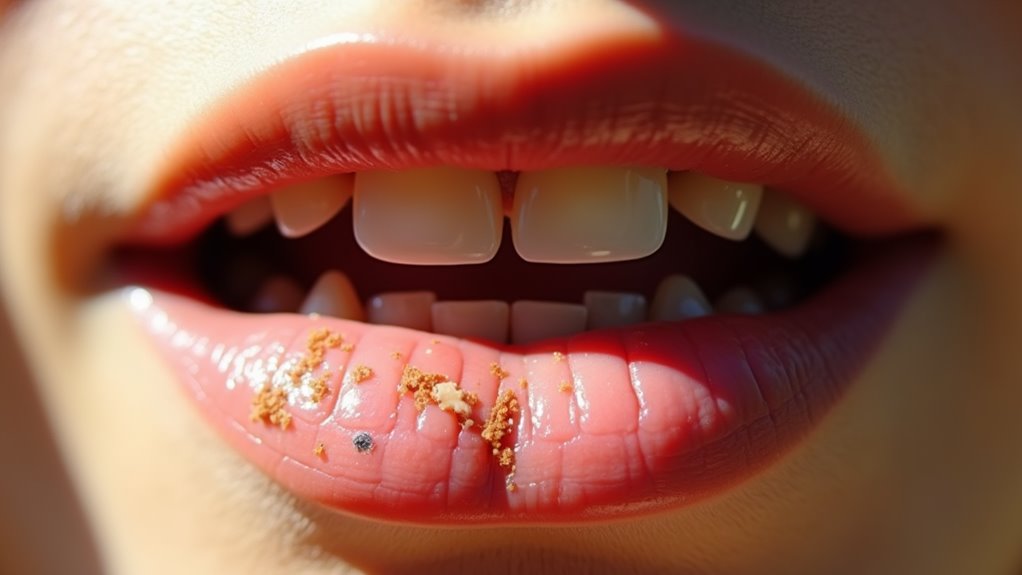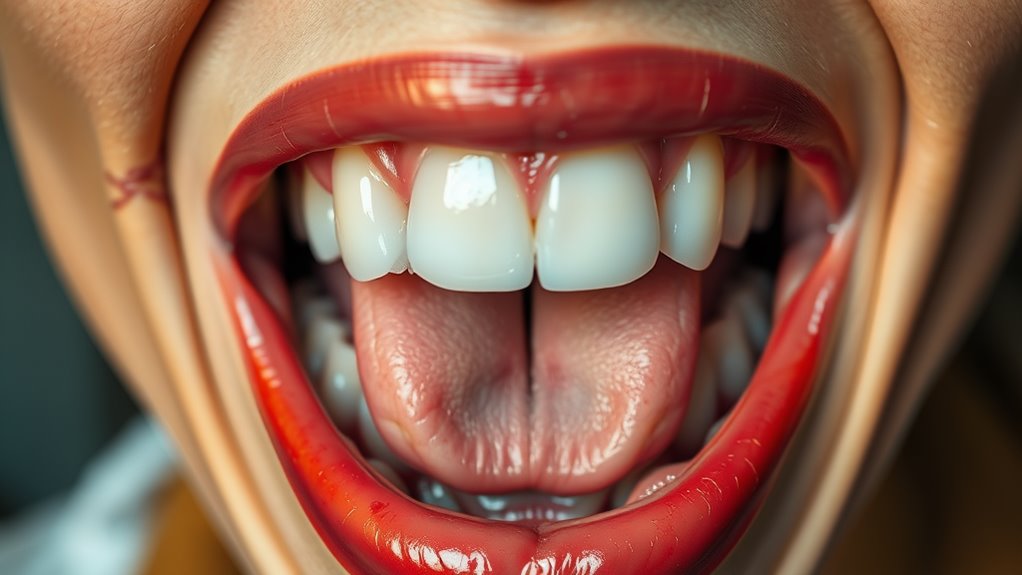Your Mouth Is Telling You Something – Are You Listening.
You’ve probably noticed changes in your mouth but brushed them off as nothing serious. That white coating on your tongue, the persistent bad breath that won’t quit, or those tender spots along your gums – they’re all trying to tell you something important. Your mouth serves as an early warning system for your body, and ignoring these signals could mean missing crucial signs about your overall health.
Common Oral Symptoms and What They Mean
When your mouth sends warning signals, it’s essential to understand what they’re trying to tell you. Your oral cavity serves as an early warning system for numerous health conditions, making it crucial to recognize these vital signs.
White patches on your tongue might indicate oral thrush or pre-cancerous changes, while persistent bad breath could signal digestive issues or diabetes.
Notice bleeding gums? That’s often an early indicator of gingivitis or potential cardiovascular problems, as gum inflammation can result from plaque buildup and lead to more serious health concerns.
Dry mouth isn’t just uncomfortable – it might point to autoimmune conditions or medication side effects.
Pay attention to changes in taste, unexplained sores, or jaw pain. These oral signs of health issues can reveal underlying conditions like vitamin deficiencies, infections, or TMJ disorders.
A metallic taste might indicate kidney problems, while mouth ulcers could suggest immune system challenges.
Hidden Health Warnings From Your Mouth
Though many people focus on obvious oral symptoms, your mouth can reveal subtle health warnings that are easy to overlook.
Watch for early-morning jaw soreness, which might indicate night-time teeth grinding – a potential sign of anxiety or sleep disorders. A suddenly dry mouth could signal autoimmune conditions or medication side effects, while persistent metallic tastes might indicate kidney or liver issues.
Pay attention to changes in your tongue’s appearance. A smooth, bright red tongue may suggest vitamin B12 deficiency, while white patches could indicate compromised immunity.
Recurring canker sores might point to inflammatory bowel disease or celiac condition, especially when accompanied by other digestive symptoms.
You’ll also want to notice your gums’ response to brushing. If they bleed easily despite good oral hygiene, you might be dealing with vitamin C deficiency, blood disorders, or early diabetes signs. Good oral hygiene is essential to prevent serious health issues related to systemic diseases.
These subtle indicators deserve your attention and often warrant professional evaluation.
When Oral Changes Need Medical Attention
Certain oral changes require immediate medical attention rather than a wait-and-see approach. If you notice persistent white or red patches, unexplained bleeding, or lumps in your mouth, don’t delay seeking professional care. These symptoms could indicate serious conditions like oral cancer or autoimmune disorders.
You’ll want to act quickly if you experience sudden changes in taste, persistent numbness, or difficulty swallowing. These signs might reveal underlying neurological issues or systemic diseases that demand prompt evaluation. Changes in taste can also be linked to dental issues that need addressing.
Watch for unusual jaw pain combined with chest discomfort, as this could signal a heart attack.
When sores don’t heal within two weeks, or if you develop unexplained loose teeth despite good oral hygiene, it’s time to get checked.
Pay attention to chronic dry mouth that doesn’t improve with hydration – it might be an early warning of conditions like Sjögren’s syndrome or diabetes. Your mouth’s signals could be your body’s first alert system.




